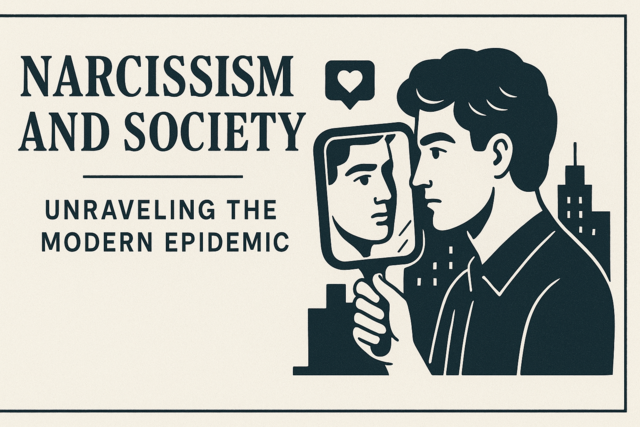Online Class: Cultural Perspectives on Trauma — Understanding Global Variations

no certificate
with CEU Certificate*
-
15Lessons
-
22Exams &
Assignments -
7Hours
average time -
0.7CEUs
Course Description
Step into a transformative journey unlike any other with our groundbreaking course, "Cultural Perspectives on Trauma: Understanding Global Variations." This is more than just an educational experience--this is a voyage across continents and cultures, offering you the keys to unlock profound understanding and empathy about the world's diverse approaches to trauma and healing.
Imagine standing at the intersection of history, culture, and human resiliency, armed with insights that could redefine the way you perceive trauma. Trauma is not just an isolated event; it's a complex tapestry interwoven with rich cultural nuances, and this course is your guide to unravelling these threads. Here, you will gain unique perspectives that challenge conventional ideas, elevating both your personal and professional life in ways you never thought possible.
As we embark on this enlightening odyssey, you'll encounter the deep scars left by colonialism and understand how collective trauma is knitted into the very fabric of societies. Learn about the enduring spirit of Indigenous cultures, who transform adversity into resilience and wisdom, and explore how narratives shape cultural memories, influencing nations and communities.
The power of belief systems becomes remarkably evident when we delve into how trauma interplays with spiritual beliefs worldwide. Imagine learning about African communal ceremonies that foster healing through togetherness, or the intricate ways Middle Eastern spirituality serves as a bedrock for resilience.
Moving forward, you'll grasp the significance of migration and displacement, not just as socio-political phenomena, but as profound personal traumas that transcend borders. By understanding the trauma of belonging, you gain empathy, a critical asset in today's globally connected world.
This course equally emphasizes the pivotal role of traditional healing practices, providing you with the wisdom of cultures that embrace a holistic approach to healing, beyond the confines of Western medicine. You'll investigate gendered experiences of trauma, revealing how identity intricately influences the trauma response, and explore how intergenerational trauma quietly shapes family and cultural legacies.
Traversing the landscapes shaped by historical violence, you'll recognize the echoes that reverberate in contemporary societies. Our exploration is not limited by geography. It is an all-encompassing, intellectual journey that also rethinks global mental health paradigms, nudging us beyond Western psychiatry towards inclusive healing frameworks that honor cultural diversity.
Prepare to be inspired by cultural rituals that have soothed souls for centuries, and learn about art and expression as universal languages of healing, providing solace across diverse cultural landscapes. Through these lenses, trauma becomes a shared human experience that transcends language and geography, inviting you to connect with others on a deeper, more empathetic level.
Your role in this course is not just as a student but as an active participant in a global discourse, equipped to instigate change, advocate for diverse perspectives, and promote inclusive healing solutions.
Upon completion, you won't just have knowledge--you'll possess cultural wisdom that is rare and invaluable. Whether you're a professional in the fields of psychology, social work, or healthcare, or someone looking to understand more about the world, the skills and insights you gain here will propel you to the forefront of your field. You'll be empowered to implement trauma-informed practices with a global integrity that respects and incorporates diverse cultural paradigms.
This is your invitation to join a community of like-minded individuals committed to understanding and healing trauma worldwide. Embark on this unparalleled educational adventure that promises not just to enlighten but to transform. Enroll now, and embrace a future filled with understanding, empathy, and the power to make a difference.
Welcome to a course that promises to leave an indelible impact on your worldview. Welcome to "Cultural Perspectives on Trauma: Understanding Global Variations"--where learning, healing, and empathy converge.
- Completely Online
- Self-Paced
- 6 Months to Complete
- 24/7 Availability
- Start Anytime
- PC & Mac Compatible
- Android & iOS Friendly
- Accredited CEUs

Course Lessons
Lesson 1. Reimagining Trauma: Understanding, Healing, and Empathy Through Global Lenses
Recognizing the cultural determinants of trauma reveals a spectrum of healing practices, from communal ceremonies in African cultures to spiritual resilience in Middle Eastern and Indigenous societies. Fostering such cultural awareness is crucial for crafting inclusive and effective trauma recovery strategies.Lesson 2. Colonial Burdens: The Lingering Echoes of Trauma
Colonialism, predominantly carried out by European powers from the late 15th century, disrupted indigenous societies, causing enduring cultural and psychological damage. The forced assimilation, economic displacement, and destruction of traditional governance systems left a legacy of trauma, which indigenous populations continue to confront through cultural revitalization and advocacy for rights.Lesson 3. Sacred Spaces and Shared Stories: Healing with Tradition
Historical colonization disrupted indigenous healing systems globally, marginalizing rich cultural traditions rooted in spirituality and community. Yet, these practices persist and evolve as modern healthcare recognizes their value, reflecting a collective appreciation for diverse healing methodologies that foster global cultural resilience and understanding.Lesson 4. Understanding Trauma: The Power of Storytelling and Cultural Memory
Digital media amplify trauma narratives, globally connecting individual stories to form a shared cultural memory. Interactive testimony platforms ensure historical events like the Holocaust reach broad audiences, preserving lessons for future generations.Lesson 5. Healing Through Faith: Global Perspectives on Trauma
Modern therapeutic approaches increasingly integrate spiritual frameworks, recognizing them as essential to holistic recovery from trauma. By embracing spiritual perspectives, therapies like mindfulness-based interventions provide enriched coping mechanisms, reflecting the cultural specificity of trauma interpretation.Lesson 6. Journeying Through Migration: Trauma and Resilience Explored
World wars and climate change reshaped global demographics, causing both cultural blends and new tensions. Stories like Anne Frank's and Primo Levi's chronicle Jewish diaspora resilience, revealing how trauma can lead to fragile geopolitical landscapes and the transient reshuffling of national identities.Lesson 7. Traditional Healing in Trauma: Bridging Spiritual and Physical Realms
Traditional healing practices emphasize communal solidarity and cultural identity through diverse methods like spiritual ceremonies, herbalism, and body therapies, promoting holistic wellness in trauma recovery. Integrating these into modern systems offers potential enrichment, fostering culturally resonant healthcare.Lesson 8. Cultural Insights into Gender and Trauma
Cultural narratives greatly influence how trauma is understood worldwide, with Western clinical models often differing from communal healing rituals found in Indigenous, African, and Middle Eastern cultures. Recognizing these perspectives helps create more inclusive, effective therapeutic approaches, honoring cultural diversity.Lesson 9. The Ripple Effect: Exploring the Legacy of Intergenerational Trauma
From the Stolen Generations in Australia to apartheid in South Africa, intergenerational trauma persists, impacting cultural identities and mental health across generations. Community-driven initiatives and educational reforms play critical roles in reconciliation and fostering resilience amid complex historical healing processes.Lesson 10. Legacy of Pain: Trauma's Ripple Across Time
Lesson Summary 2: Historical trauma is woven into the fabric of contemporary society, influencing identities and community structures with roots extending back to events like the Holocaust and apartheid. Intergenerational transmission of these traumas necessitates ongoing efforts in education, reconciliation, and justice to facilitate healing and prevent perpetuation.Lesson 11. Cultural Contours of Mental Health Treatment
In understanding global mental health, practitioners must explore beyond Western psychiatric frameworks to appreciate how cultural dynamics shape wellness, distress expressions, and treatment preferences. Emphasizing cultural competence can vastly improve therapeutic outcomes by integrating holistic and community-centered practices prevalent in non-Western societies.Lesson 12. Global Healing Wisdom: Transforming Trauma through Tradition
Ayurvedic and Tibetan philosophies offer holistic healing approaches, using elements like therapeutic massage and mandalas to balance emotions and promote mindfulness. These practices encourage a broader understanding of health as a dynamic interplay of body, mind, and spirit.Lesson 13. Trauma, Culture, and Resilience: A Complex Tapestry
Holistic approaches to trauma blend modern therapies with cultural wisdom, forging strong narratives of post-traumatic growth. Through initiatives like cognitive-behavioral interventions, expressive arts, and mindfulness, individuals transform narratives of suffering into empowering tales of resilience.Lesson 14. Trauma and Race
Understanding how cultural perspectives shape trauma helps students engage empathetically with diverse communities, highlighting the significance of historical and psychological factors in trauma within different ethnic groups. This awareness fosters collaboration between traditional cultural practices and modern therapeutic methods, promoting inclusive healing strategies.Lesson 15. Harnessing Heritage: Art's Role in Healing
Asian storytelling traditions are highlighted for their therapeutic impact, illustrating how narratives bridge generations and support individual and communal healing. Through tales infused with cultural wisdom, individuals find solace and empowerment, navigating trauma within a broader collective narrative that emphasizes resilience and continuity.
Learning Outcomes
- Demonstrate cultural sensitivity by comparing Western and non-Western frameworks of trauma, including collective versus individual approaches.
- Define trauma-related terms and concepts across diverse cultural contexts using examples from various global communities.
- Demonstrate an understanding of the psychological impacts of colonialism by analyzing how colonial legacies manifest in contemporary indigenous communities.
- Identify strategies utilized by indigenous populations for healing and resilience in response to historical and ongoing trauma caused by colonial practices.
- Demonstrate an understanding of how brain structures like the hippocampus and amygdala impact memory and emotional processing in trauma contexts.
- Identify and describe the role of traditional healing practices in fostering community-based trauma recovery and resilience.
- Define how cultural narratives contribute to shaping collective memory of trauma, highlighting their role in healing and resilience.
- Identify examples of narrative practices within various cultures that illustrate the preservation and transformation of traumatic memories across generations.
- Demonstrate understanding of global variations in spiritual approaches to coping with trauma by describing specific cultural practices and rituals.
- Identify how diverse cultural contexts influence trauma processing and healing by examining spiritual beliefs and historical events.
- Describe how migration throughout history has facilitated cultural exchange and resilience by identifying specific historical examples.
- Explain the psychological impacts of forced migration and displacement by illustrating cultural differences in trauma expression and recovery processes.
- Demonstrate mastery of lesson content at levels of 70% or higher.
Additional Course Information

- Document Your Lifelong Learning Achievements
- Earn an Official Certificate Documenting Course Hours and CEUs
- Verify Your Certificate with a Unique Serial Number Online
- View and Share Your Certificate Online or Download/Print as PDF
- Display Your Certificate on Your Resume and Promote Your Achievements Using Social Media

Choose Your Subscription Plan
No Certificate / No CEUs
This course only
| Includes certificate | X |
| Includes CEUs | X |
| Self-paced |

|
| Instructor support |

|
| Time to complete | 6 months |
| No. of courses | 1 course |
Certificate & CEUs
This course only
| Includes certificate |

|
| Includes CEUs |

|
| Self-paced |

|
| Instructor support |

|
| Time to complete | 6 months |
| No. of courses | 1 course |
Certificates & CEUs
Includes all 600+ courses
| Includes certificate |

|
| Includes CEUs |

|
| Self-paced |

|
| Instructor support |

|
| Time to complete | 12 Months |
| No. of courses | 600+ |
Certificates & CEUs
Includes all 600+ courses
| Includes certificate |

|
| Includes CEUs |

|
| Self-paced |

|
| Instructor support |

|
| Time to complete | 24 Months |
| No. of courses | 600+ |
Related Courses
-
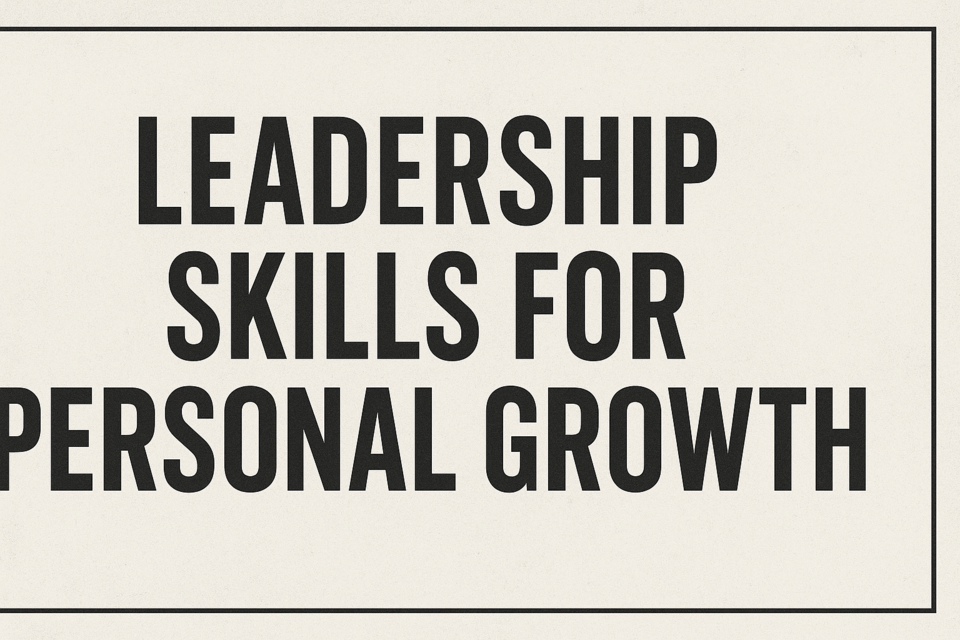 4 hours
0.4 CEUs
Leadership Skills for Personal Growth
+ More Info
4 hours
0.4 CEUs
Leadership Skills for Personal Growth
+ More Info
-
 7 hours
0.7 CEUs
Self-Care and Wellness Practices
+ More Info
7 hours
0.7 CEUs
Self-Care and Wellness Practices
+ More Info
-
 4 hours
0.4 CEUs
Applying Creativity in Everyday Life
+ More Info
4 hours
0.4 CEUs
Applying Creativity in Everyday Life
+ More Info
-
 4 hours
0.4 CEUs
Home Organization and Decluttering Techniques
+ More Info
4 hours
0.4 CEUs
Home Organization and Decluttering Techniques
+ More Info
-
 3 hours
0.3 CEUs
Budgeting and Financial Planning
+ More Info
3 hours
0.3 CEUs
Budgeting and Financial Planning
+ More Info
-
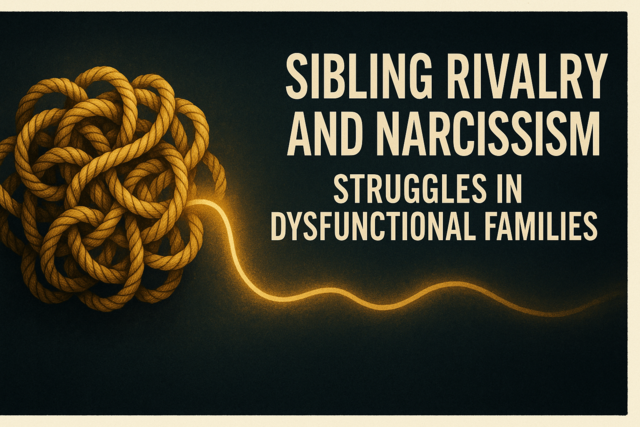 6 hours
0.6 CEUs
Sibling Rivalry and Narcissism: Struggles in Dysfunctional Families
+ More Info
6 hours
0.6 CEUs
Sibling Rivalry and Narcissism: Struggles in Dysfunctional Families
+ More Info
-
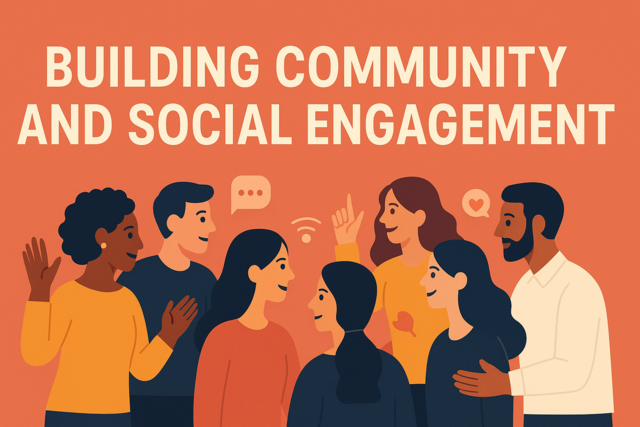 7 hours
0.7 CEUs
Building Community and Social Engagement
+ More Info
7 hours
0.7 CEUs
Building Community and Social Engagement
+ More Info
-
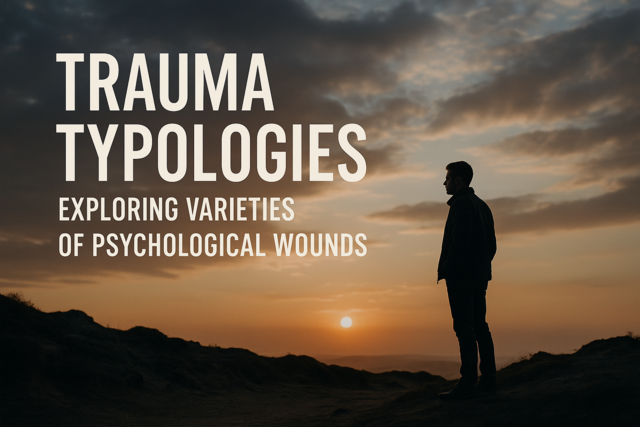 7 hours
0.7 CEUs
Trauma Typologies: Exploring Varieties of Psychological Wounds
+ More Info
7 hours
0.7 CEUs
Trauma Typologies: Exploring Varieties of Psychological Wounds
+ More Info
-
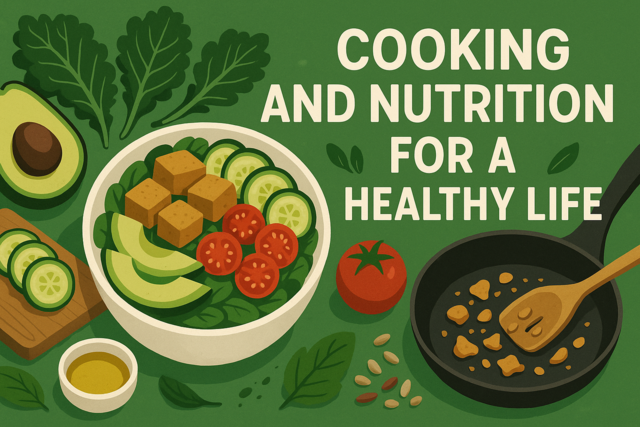 5 hours
0.5 CEUs
Cooking and Nutrition for a Healthy Life
+ More Info
5 hours
0.5 CEUs
Cooking and Nutrition for a Healthy Life
+ More Info
-
 5 hours
0.5 CEUs
Personal Hygiene and Grooming Essentials
+ More Info
5 hours
0.5 CEUs
Personal Hygiene and Grooming Essentials
+ More Info
-
 6 hours
0.6 CEUs
Introduction to Minimalist Living
+ More Info
6 hours
0.6 CEUs
Introduction to Minimalist Living
+ More Info
-
 5 hours
0.5 CEUs
Financial Literacy for Teenagers
+ More Info
5 hours
0.5 CEUs
Financial Literacy for Teenagers
+ More Info
-
 4 hours
0.4 CEUs
Basic Household Maintenance Skills
+ More Info
4 hours
0.4 CEUs
Basic Household Maintenance Skills
+ More Info
-
 3 hours
0.3 CEUs
Parenting Skills for the Modern Family
+ More Info
3 hours
0.3 CEUs
Parenting Skills for the Modern Family
+ More Info
-
 7 hours
0.7 CEUs
Building a Healthy Work Environment
+ More Info
7 hours
0.7 CEUs
Building a Healthy Work Environment
+ More Info
-
 5 hours
0.5 CEUs
Generational Patterns: How Narcissism Perpetuates Dysfunction
+ More Info
5 hours
0.5 CEUs
Generational Patterns: How Narcissism Perpetuates Dysfunction
+ More Info
-
 4 hours
0.4 CEUs
Emergency Preparedness and Survival Skills
+ More Info
4 hours
0.4 CEUs
Emergency Preparedness and Survival Skills
+ More Info
-
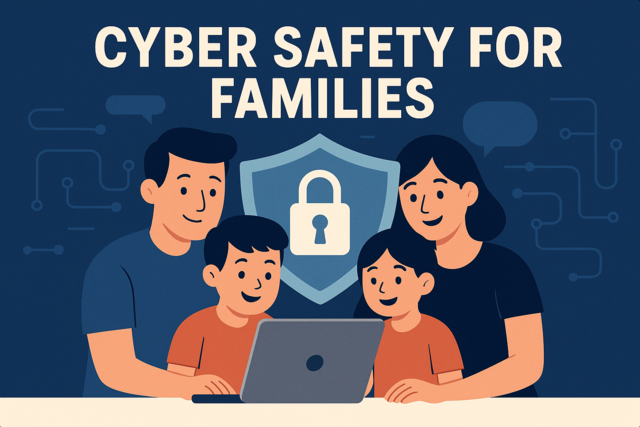 5 hours
0.5 CEUs
Cyber Safety for Families
+ More Info
5 hours
0.5 CEUs
Cyber Safety for Families
+ More Info
-
 5 hours
0.5 CEUs
Self-Discipline and Motivation Strategies
+ More Info
5 hours
0.5 CEUs
Self-Discipline and Motivation Strategies
+ More Info
-
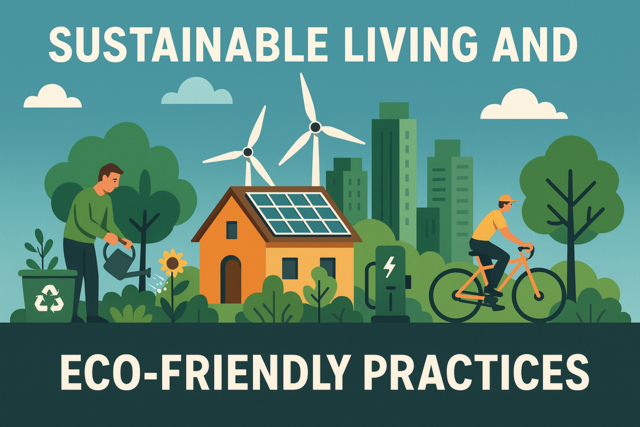 7 hours
0.7 CEUs
Sustainable Living and Eco-Friendly Practices
+ More Info
7 hours
0.7 CEUs
Sustainable Living and Eco-Friendly Practices
+ More Info
-
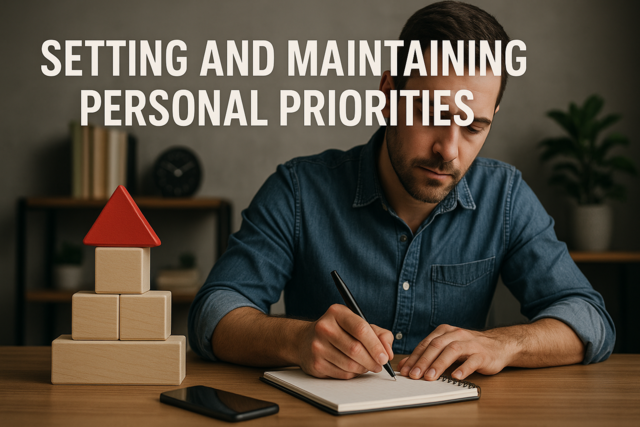 5 hours
0.5 CEUs
Setting and Maintaining Personal Priorities
+ More Info
5 hours
0.5 CEUs
Setting and Maintaining Personal Priorities
+ More Info
-
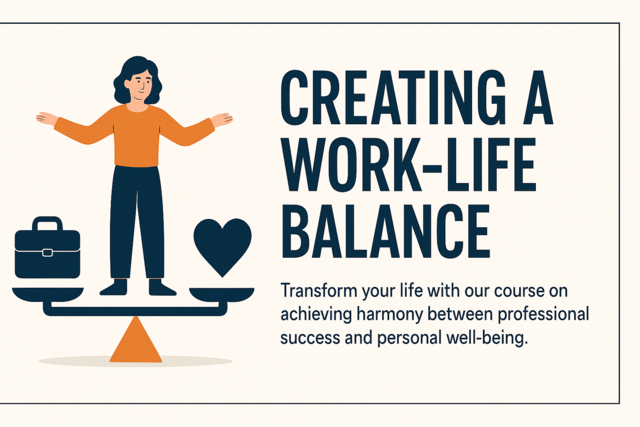 6 hours
0.6 CEUs
Creating a Work-Life Balance
+ More Info
6 hours
0.6 CEUs
Creating a Work-Life Balance
+ More Info
-
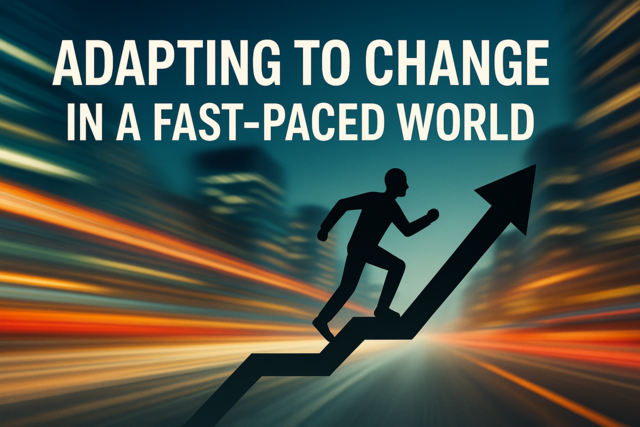 7 hours
0.7 CEUs
Adapting to Change in a Fast-Paced World
+ More Info
7 hours
0.7 CEUs
Adapting to Change in a Fast-Paced World
+ More Info



